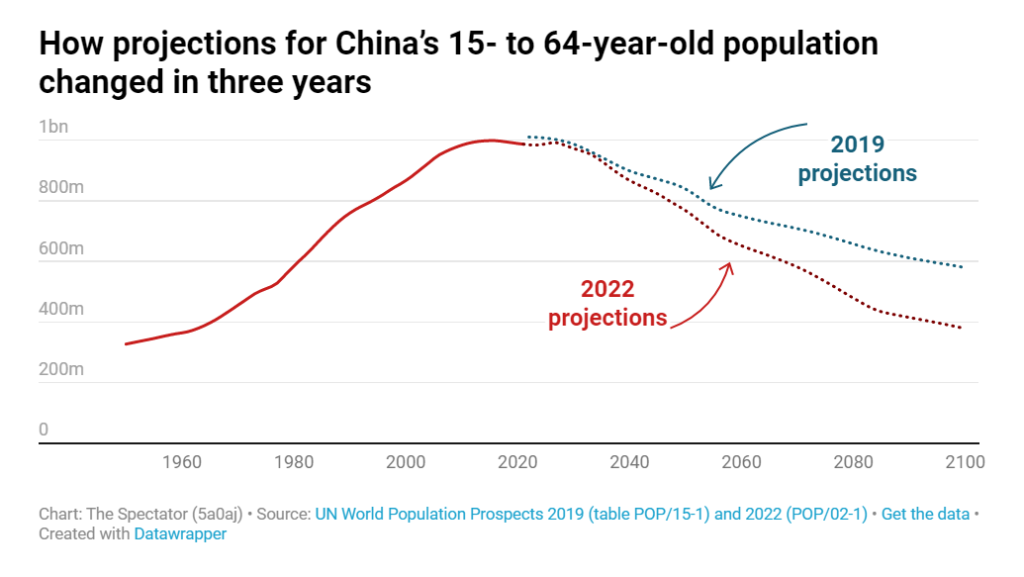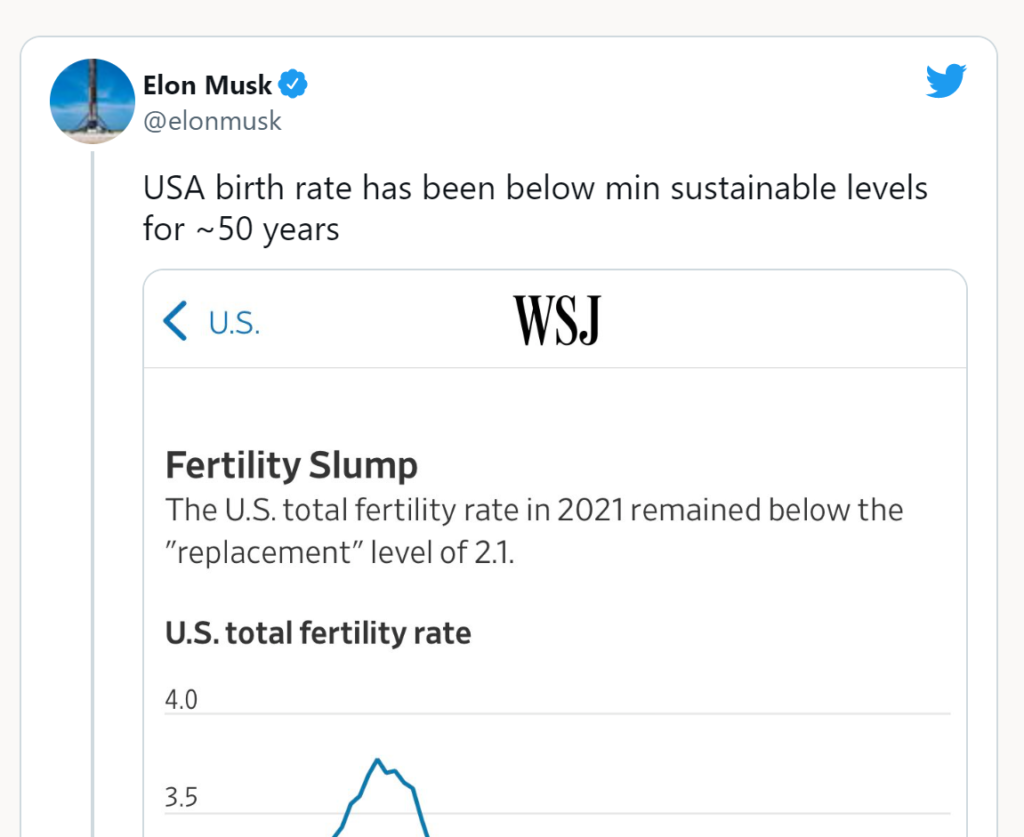Link: https://www.spectator.co.uk/article/baby-bust-chinas-looming-demographic-disaster
Graphic:

Excerpt:
According to a new UN report, China’s population growth has collapsed by 94 per cent, from eight million a decade ago to just 480,000 last year. What’s particularly worrying for Chinese leaders is that this means a rapid reduction in the working population. The previous set of projected figures suggested that by the year 2100, China’s 15- to 64-year-old population would be 579 million. This has now been revised down to 378 million, a 35 per cent fall. If this prediction plays out, the implications for China – and the rest of the world – could be brutal.
Today, every 100 working-age Chinese need to support 20 retirees. If trends continue, by the turn of the next century, every 100 workers will have to support 120 retirees. This means China will have the largest drop in working-age population among any of the G20 economies by 2030, with more than 23 million fewer Chinese. In percentage terms, Japan and South Korea will shrink even faster – but they became rich before birth rates began plummeting.
Author(s): Rana Mitter
Publication Date: 6 Aug 2022
Publication Site: The Spectator UK





